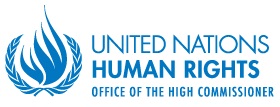Success stories in protection of human rights in the everyday life

“Human rights are your tools, the best and most effective investment in a safe and secure future for your people”, said UN High Commissioner for Human Rights Michelle Bachelet. Bachelet made a statement during the launch of the UN Human Rights Office’s Annual Appeal. The budget of USD 321.5 million in the appeal would enable what she said would be the most ambitious work program ever developed by the Office. The funds will fund approximately 1,300 staff in 72 field presences around the world, including headquarters in Geneva.
They will also provide funding for projects and ongoing work on human rights that make a difference in people’s lives. Below are some examples of how it works:
Guatemala
Mayan weavers in Guatemala received assistance from the UN Human Rights Office to preserve their traditional weaving patterns. Under the slogan “Textiles are books that the colonists could not burn”, a collective of weavers was formed, and some of them were trained at the UN Human Rights Office in Guatemala. Members of one of the groups – “Asociación Femenina para el Desarrollo de Sacatepéquez” – eventually filed a petition for the protection of intellectual property rights to the Constitutional Court of Guatemala.
Moldova
Deciding to improve the lives of its minorities, the Moldovan government has begun a complete transformation of Moldovan society in terms of human rights, which can be called revolutionary. The two key laws that ensure this transformation – Law 60, which guarantees the social inclusion of persons with disabilities, and Law 121, which provides for a complaints mechanism for cases of discrimination – were developed with the assistance of the UN Human Rights Office.
South Korea
Reportedly, the number of persons abducted during and after the war in South Korea ranges from 80,000 to 100,000 during the conflict and 516 after. The UN Human Rights Office in South Korea works with individuals, NGOs and other actors to help the families of abducted persons gain access to information on missing relatives.
Kosovo*
The Multinational Resource Centre for Missing Persons in Kosovo* enables families and groups of all ethnic origins to collaborate and collect data on those who went missing during the 1998-1999 conflict. The centre was opened with the assistance of the Human Rights Office of the United Nations Mission in Kosovo*.
*The reference to Kosovo is to be understood in full compliance with UN Security Council resolution 1244 (1999) and without any prejudice to the status of Kosovo.
You can read more about these projects and other stories about the work of the UN Human Rights Office on the Exposure website. You can support our work and read stories about protecting human rights in everyday life in the Annual Appeal.










